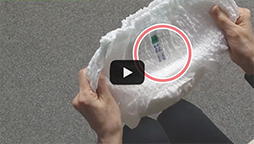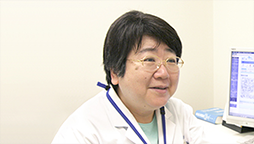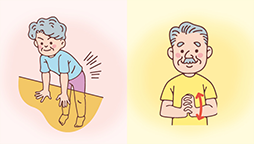Is incontinence preventing your healthy senior living?
Healthy senior living means living independently and in good health without the need for nursing care or other intensive support.
People are living longer than ever before, and healthy senior living has become a national concern. Incontinence is one problem that many seniors struggle with—and just like loss of motor function or physical weakening, it can keep people from living an independent life. And yet, many people tend to ignore the symptoms as nothing serious.
Note: All data collected from a Unicharm survey conducted March of 2015 (1,237 respondents)
One in four people age 50+ have experienced incontinence issues!
Incontinence experience rate
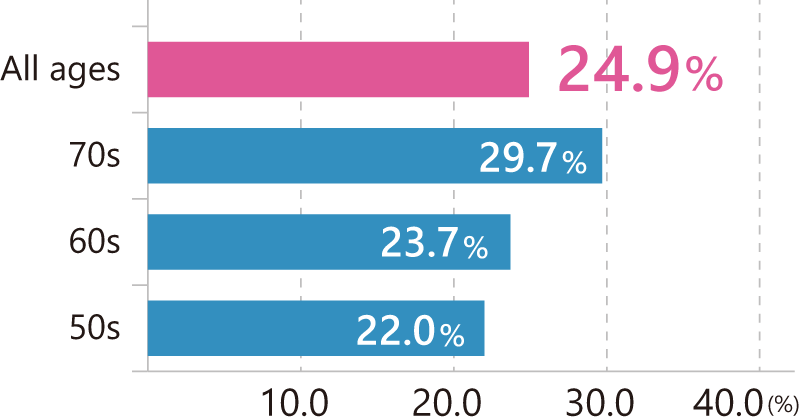
A Unicharm survey revealed that 24.9% of people age 50+ have experienced incontinence issues at some point. That’s nearly one in four!
The percentage goes up to one in three people in their 70s. For people in their 50s—many of whom are still working—it’s one in four or five. Put simply, incontinence affects people across a wide range of age groups.
Incontinence issues are frequently left unaddressed
Incontinence issue dealing status
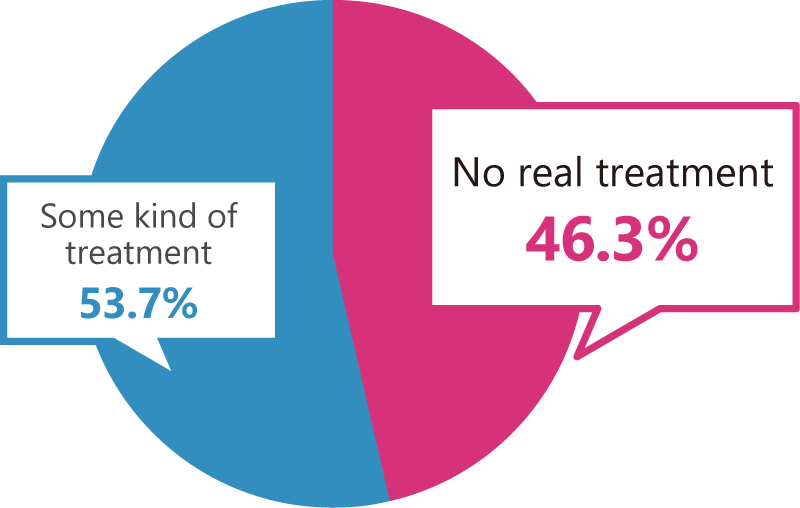
Nearly half (46.3%) of people who deal with incontinence issues at least once a month say that they don’t do anything in particular about them (e.g. using incontinence care products). This means that half of people suffering from incontinence are doing nothing about it.
It’s not uncommon for people to be embarrassed about leaks and find it difficult to talk about. Even if they do notice, they may pretend it’s not happening, chalk it up to getting older, and do nothing about them. But just deciding they are inevitable and giving up can actually accelerate the aging process.
Four daily habits that extend the healthy years: diet, exercise, sleep, and proper incontinence care
Japan’s Ministry of Health, Labour and Welfare has issued three basic health principles for daily living under its Healthy Japan 21 project, with the aim of extending the healthy years of its citizens. They are: a balanced diet, adequate exercise, and plenty of sleep.

But we also know that people suffering from incontinence are mentally and physically hindered from living according to these three principles.
When asked about their incontinence issues, 18.7% of people said that they have avoided going out as a result, while 30.2% said that incontinence has affected their sleep. And one in four (25.9%) have limited their fluid intake—putting themselves at greater risk for heatstroke and other problems.
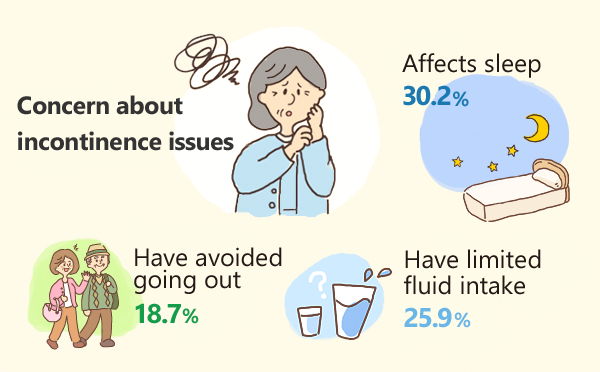
So how does incontinence prevent people from living a healthy senior lifestyle according to the three principles?
People who struggle with incontinence tend to have to urinate more frequently, which causes them to have to get up in the middle of the night to go to the bathroom and affects both the quality and quantity of their sleep.
Limiting fluid intake not only puts people at greater risk for heatstroke, but can also result in a loss of appetite and the pleasure of eating.
Going out less means fewer opportunities for physical movement, which can result in weight gain or loss of muscle mass.
Special feature
Live a more active life with proper incontinence care! Dr. Takao Suzuki, graduate professor (Graduate School of Gerontology, J. F. Oberlin University)
Extend your healthy years not just with proper diet, exercise, and sleep—but with proper incontinence care as well! If you lose control of your urinary functions and start worrying about leaks, you’re likely to stop meeting up with friends and participating in social activities. Urinary incontinence is a common geriatric syndrome that can happen to anyone as they age. It’s important to remember that you’re not alone and personally take steps to address it.



